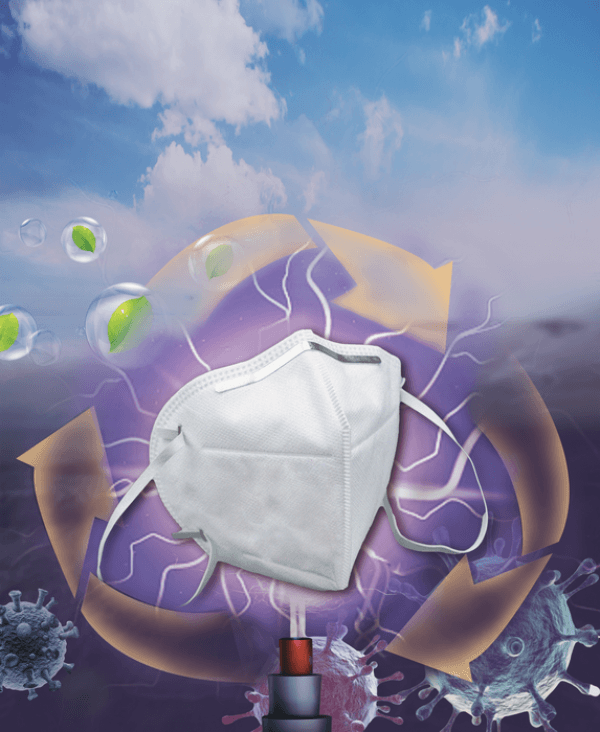Technology created at the University of South Florida (USF) could be the key to safely reusing disposable face masks. Researchers have figured out a way to rapidly disinfect and electrostatically recharge N95 respirators, recovering their original filtration efficiency and protection capability against COVID-19 and other airborne diseases.
In their study published in “Environmental Science & Technology,” the team demonstrated their patent-pending sterilization technology could restore an N95 respirator’s original filtration efficiency of about 95 percent, even after 15 cycles of treatment. The technology fights coronavirus by using corona discharge – ambient atmospheric pressure plasma. The technology works by simultaneously deactivating pathogens on a mask and restoring its electrostatic charges. It is non-thermal, meaning it doesn’t require extra heating, and doesn’t require chemicals or contact, making it safe and convenient to use. It’s reusable, safer than ultraviolet (UV) radiation and is a low-power consumption technique – only requiring 1.25 watts of electricity.
In addition to providing protection, corona discharge treatment can have a significant impact on the environment. According to a report released by the Hong Kong-based marine conservation organization OceansAsia, 1.56 billion face masks polluted the oceans in 2020 and will likely take more than 450 years to fully decompose. Instead of individuals using hundreds of masks per year, researchers say the technology will limit their consumption to dozens each year.
Read more at University of South Florida (USF Innovation)
Image: Graphic demonstrates how technology created at the University of South Florida uses corona discharge to rapidly disinfect and electrostatically recharge N95 respirators. (Credit: University of South Florida)


